I’m a writer, but, as I’ve so often said, I’m more of a reader than a writer, because I admit that I prefer reading to writing.
I’m a great reader, which means I read a lot, much more than most people.
I’ve always read a lot, but in the last three-four years, I’ve been reading between eight and fifteen books a month, depending on weather I’m writing or not. Most of the books I read are kindle ebooks, but I also read some paperbacks and a few audio books a month, too.
I read contemporary fiction, especially independent authors, debut authors and some bestsellers.
I especially enjoy reading psychological thrillers, romantic suspense, crime fiction, paranormal (but not vampires etc.), women’s fiction, Chick lit, historical romance, and contemporary romance.
I finish and review almost every book I start, unless I don’t enjoy it. Reading is a pleasure, and life’s too short to read books that aren’t for me.
As a result of all this reading and reviewing, I’ve decided to write a very personal, and therefore totally subjective, list of ingredients that make a great novel.
Here are my ingredients, in no particular order.
- Good editing is basic. I don’t mean random typos, which I may not even notice, I’m talking about grammar, syntax, register, clichés, repeated words, too many dialogue tags, and punctuation.
- Not too wordy. I don’t enjoy reading too much information, which adds nothing to the plot or characterisation. I don’t mind an occasional ‘red herring’, but I’m not keen on plots that go all over the place and confuse me.
- Good writing, which means it’s pleasant to read. This ties up with the previous points. I really appreciate, clear and precise prose, which gives me the information I need to feel I’m part of the setting and get to know the characters, like Girl in the Ice.
- Short chapters and short paragraphs are easier to read. I’m very busy and sometimes tired, as most readers. I read for a few minutes here and there, often while commuting or travelling, on a lunch break, between chores, at the end of the day, etc. I don’t enjoy rereading long paragraphs to try to understand what the main point is.
- Not too long (although it can be part of a series). In general I prefer books between 70 and 80 thousand words, which can be read in a few afternoons or evenings. I don’t mind occasional cliff hangers, as long as part of the story is complete, otherwise I feel frustrated. I don’t mind reading part of a series either, I fact I quite enjoy it, as I’ve become invested in the characters and want to know more about their story, such as The Detective Jack Stratton books. (There are exceptions, by exceptional authors such as Ken Follet. I don’t mind how long his novels are!)
6. Not too short (unless it’s a book of short stories). Most short novels I’ve read feel incomplete. I prefer a longer story.
7. Engaging characters. Characters don’t have to be likeable, in fact I’m attracted to flawed characters, but I need to be interested in what’s happening to them and what they’re doing. Ideally, they need to be having a hard time, and I need to care about how they cope with their issues, such as ‘I Let You Go‘ in which a woman is coping with the results of a tragic accident she was involved in. 
8. More than one viewpoint. Life isn’t monochrome, and although I have nothing against stories told from one point of view, I prefer at least two distinct voices. It makes the story more complex and I feel as if I have all sides of the argument. One person’s vision or viewpoint is necessarily limited. I love two first person narrators as ‘Gone Girl’.
9. An overall meaning or message. It’s especially rewarding to read a novel when the events or feelings are part of something bigger than the story itself, for example a universal event, in which we could all experience, such as the overcoming the pain of the loss of a child, or a divorce such as ‘The Ladies Room.’
10. Surprises or plot twists every 6-10 minutes. Sometimes novels drag because nothing much happens for pages on end. I need things to happen constantly to keep me turning pages. This needn’t big huge plot twists, it can be a change of scene, character, some news, anything that moves the action forward and stops the slow or dragging sensation, like Matt Cairns, Cold Blooded, which wastes none of the reader’s time in this gripping thriller.
11. Unexpected big twist right before the end. I love this. When you think everything’s sorted out and there’s another unexpected turn, which makes you sit up. The last 10% is as important as the first 10%, because it’s what will stay in my mind and convince me to buy another book by the writer, such as ‘The Sister’.
12. Not too many main characters. Two main characters are often enough, although I prefer a few more, but too many can be confusing, unless it’s a complex family or historical drama.
13. Defined secondary characters. I dislike lifeless secondary characters. All characters in the novel should all come to life, even if their role is secondary. Imagine watching a film where only the protagonists are good actors, but the rest are amateurs. The film wouldn’t be much good, would it? The secondary characters need to support the main characters, and they’re often entertaining and vital for moving the plot forward, like The Photographer’s Wife.
14. Concentrating the present-time action (narrator time) in a short period, for example a few days, helps me to focus on the plot, even though back story will also usually be included in flashbacks or conversations, such as The Ventian, which takes place over a weekend in Venice.
15. Gradually including back story. The back story is usually necessary for the plot to develop and to get to know the characters, but the way in which it is gradually told will build suspense and add unexpected plot twists.
16. Surprising angle to an old story. Most plots are familiar. So many stories have been told in so many ways that it’s hard to be original, but when it happens, it’s riveting! For example murder from the dead child’s point of view as in ‘The Lovely Bones’, or telling the story of a millionaire falling in love with a poor girl, set in the early 20th century between a fake medium and a railway baron, as in Baron.
17. Romance. Love is an important part of everyone’s life, falling in love, staying in love, overcoming relationship crisis, moving on, second chances, are all situations I love to read about, such as The Hollow Heart.
18. Humour. I enjoy reading comedies, occasionally, but a touch of humour is often enough. A humorous situation or character, lightens the drama, and it makes the story realistic; we all come across witty people, who liven up our daily lives. I love romantic comedies told from the point of view of men, which are often very amusing, such as Emma Chase novels, especially, Sustained.
19. Drama. I love reading about events which make me feel strong emotional reactions such as anger, fear, sadness even. I cried at the end of Who We Were Before, but I loved that the writer was able to provoke that emotion.
20. Extraordinary things happening to ordinary people. I love it when what happens to the characters could happen, or could have happened, to me or people I know. It’s credible so I feel drawn into the story. For example a computer programmer who is targeted by the Russian mafia, as in Kissing my Killer.
21. The setting. I love it when the setting or a specific place in the novel becomes as important and unique as the plot or characters, not just the background. This can happen if it’s a city, village, or an idyllic landscape, or country house, such as in ‘Eclipse Lake.’
Do you agree with (all) of these ingredients?
Can you suggest any other ingredients to include?
Let me know, I’d love to hear what you think!
Follow Luccia Gray on Social Media:

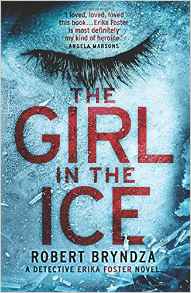
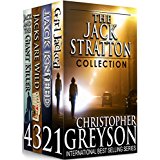


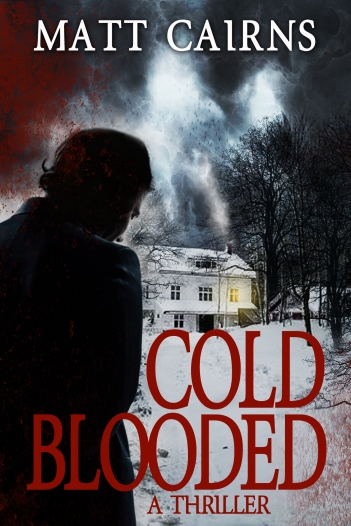
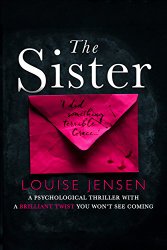
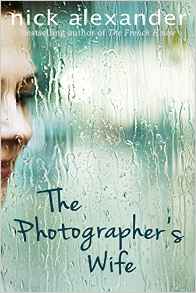






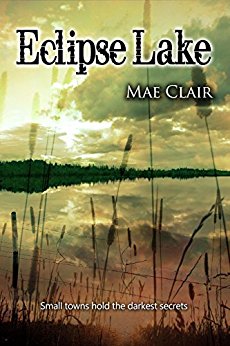

I write in first person and I have no problem reading a novel from that perspective. I too like short chapters. Especially when I only want to read one more chapter before bed. It’s frustrating when it then lasts 30 minutes for that one chapter!
LikeLiked by 1 person
I feel the same. Writers need to know what readers want and prefer, after all they’re going to be reading it hopefully💖
LikeLike
A brilliant set of ingredients!
LikeLiked by 1 person
Thanks Linda💖 Easy to identify the ingredients, but hard to get it right!
LikeLiked by 1 person
Always easier in theory I think!
LikeLiked by 1 person
Wow! I hopped over to read your post and was going back and forth to Amazon on some of the titles, and then I hit “setting” at the bottom and saw Eclipse Lake. Thank you so much for including my novel, and I’m glad the setting came alive for you.
I love short chapters that keep the plot moving forward and keep me turning pages. And like you, I’m attracted to flawed characters. I prefer third person POV over first, although I will read first person POV if it is well done. Lately, I’ve really fallen in love with books that move between two time periods. Jennifer McMahon does it so well, I’m frequently in awe of her story-telling abilities.
I don’t read quite as much as you, but normally average between 60-80 books a year. I love to write, but honestly, there are times I wish I could just read, LOL!
LikeLiked by 2 people
I’m reading a lot at the moment. I love it when settings draw me in as in Eclipse Lake, where the lake is as much part of the plot as a character
LikeLiked by 1 person
Reblogged this on Gloria Antypowich – Romance and Love Stories.
LikeLiked by 1 person
Thank you.💗 Gloria. Glad you liked it.
LikeLike
Thrilled to be included in this list, thanks so much for that Luccia. You read so widely, and it’s so obvious it’s your passion. Your list of pointers could serve as a ‘good writing’ guide too! X
LikeLiked by 1 person
I try to write using my own suggestions, but it’s easier said than done🙄
LikeLiked by 1 person
This is a great post Luccia! I agree on your points. I just bought Girl in the Ice, but haven’t read it yet. I did read Cold Blood, but didn’t really like it because it was a bit too graphic/violent. I just finished a book that had so many characters that I couldn’t keep them straight. I kept getting the names and deeds mixed up and had to keep re-reading to keep it all straight and it really took away from the story.
LikeLiked by 1 person
Thank you for reading and commenting. I agree with you about too many characters, unless you’re Garcia Marquez, it’s better to stick to a few select characters.
LikeLiked by 1 person
Only book I that comes to mind that worked for me with lots of characters is The Magpie Murders (it was very clever, but I did have to take notes!)
LikeLiked by 1 person